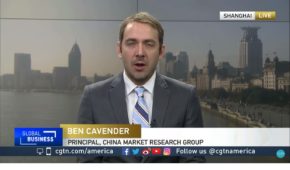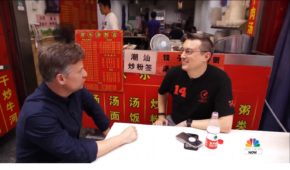 |
| Arthur Kroeber |
The Washington Post:
By depressing demand for Chinese goods, U.S. tariffs have cost 3 million Chinese factory workers their jobs, according to Trump, and put pressure on Chinese President Xi Jinping to make a deal.
Trump's claim to have the upper hand at the negotiating table does not appear to have convinced the Chinese.
"They've decided Trump is a vacillating guy who can't figure out what he wants and gets spooked every time the stock market goes down or someone accuses him of not being tough," said Arthur Kroeber, managing director of Gavekal Dragonomics, a consultancy in Beijing. "Although there are problems in China, they believe they have their economy under control, more so than Trump. They think he is more vulnerable to a slowdown and that they can afford to wait him out."The Washington Post.
Arthur Kroeber is a speaker at the China Speakers Bureau. Do you need him at your meeting or conference? Do get in touch or fill in our speakers' request form.
Are you looking for more experts on the ongoing trade war between China and the US? Do check out this list.

















